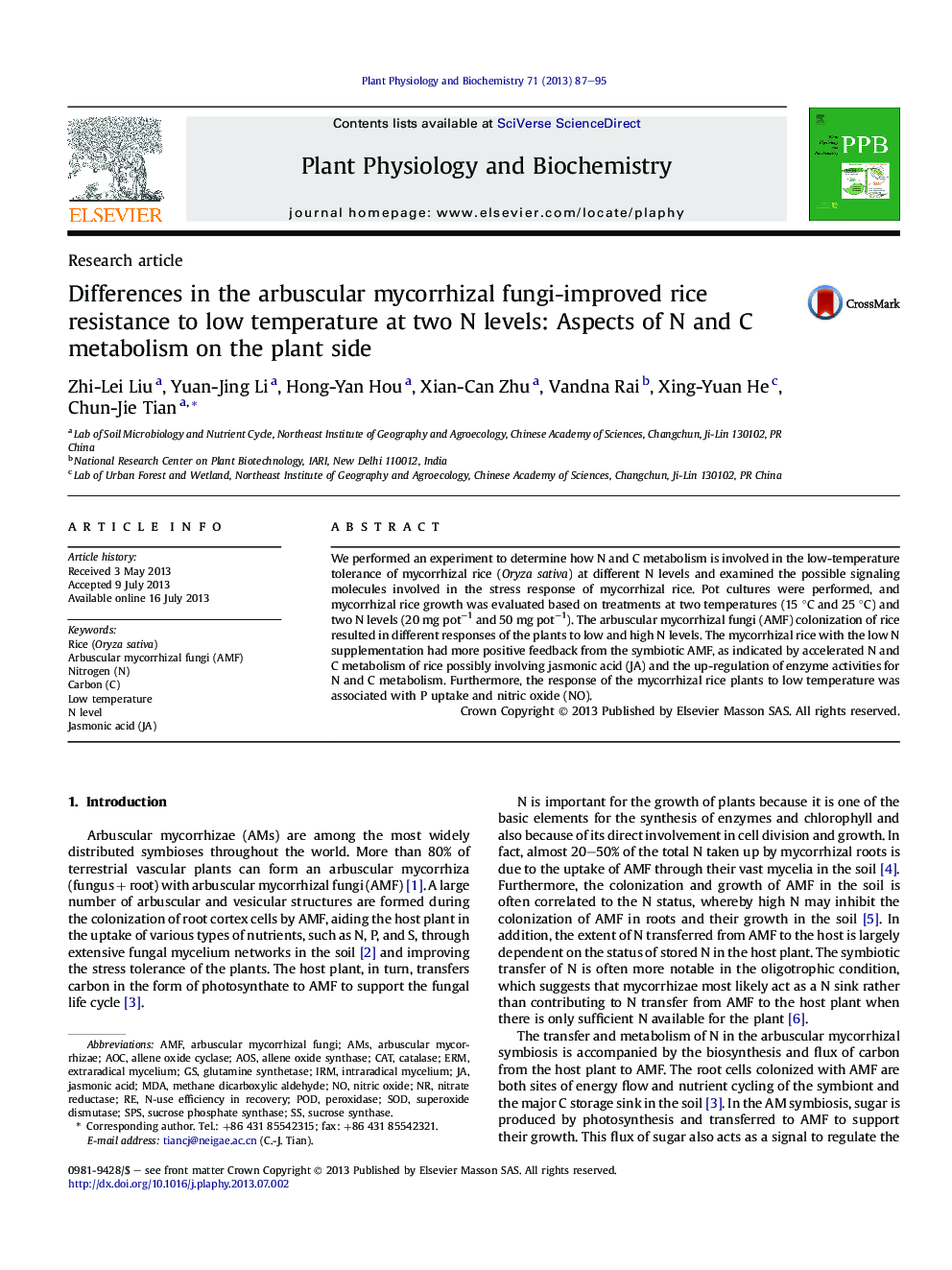| Article ID | Journal | Published Year | Pages | File Type |
|---|---|---|---|---|
| 2016299 | Plant Physiology and Biochemistry | 2013 | 9 Pages |
•We studied N and C metabolism in AMF rice at different N and temperature levels.•AMF colonization result in different responses of rice to low and high N levels.•AMF have more positive feedback to the host plant at low-N level.•AMF can improve rice tolerance by accelerating N and C metabolism.•JA participates in the process of AMF improving rice low temperature tolerance.
We performed an experiment to determine how N and C metabolism is involved in the low-temperature tolerance of mycorrhizal rice (Oryza sativa) at different N levels and examined the possible signaling molecules involved in the stress response of mycorrhizal rice. Pot cultures were performed, and mycorrhizal rice growth was evaluated based on treatments at two temperatures (15 °C and 25 °C) and two N levels (20 mg pot−1 and 50 mg pot−1). The arbuscular mycorrhizal fungi (AMF) colonization of rice resulted in different responses of the plants to low and high N levels. The mycorrhizal rice with the low N supplementation had more positive feedback from the symbiotic AMF, as indicated by accelerated N and C metabolism of rice possibly involving jasmonic acid (JA) and the up-regulation of enzyme activities for N and C metabolism. Furthermore, the response of the mycorrhizal rice plants to low temperature was associated with P uptake and nitric oxide (NO).
